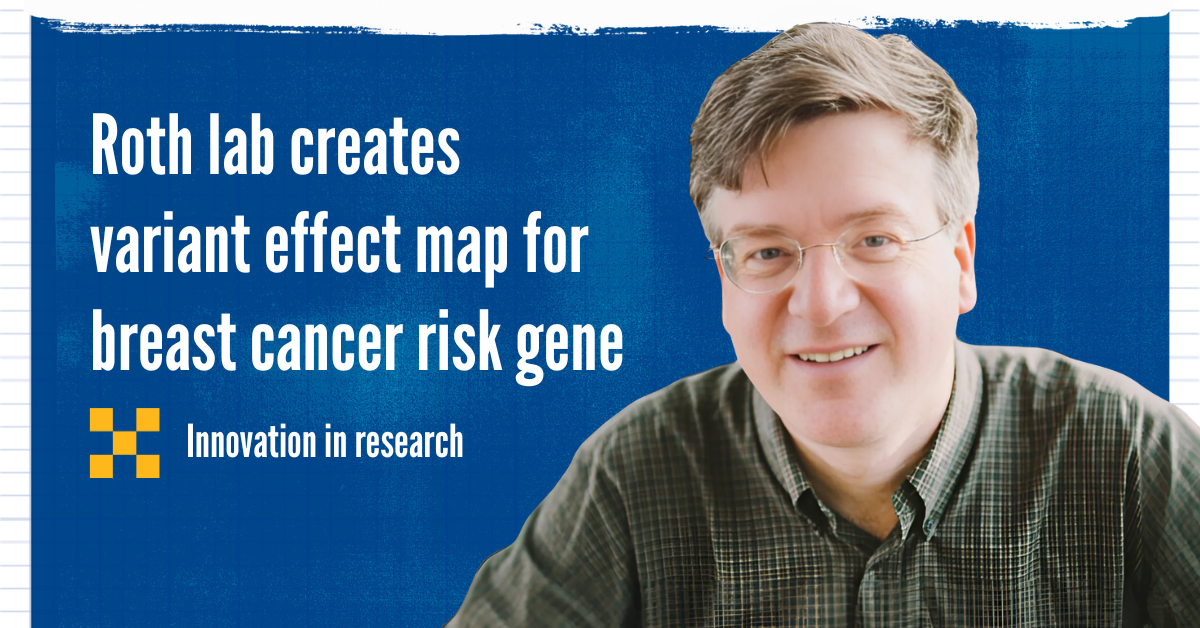What if there were a way to improve clinical testing for changes in our genome (variants) that cause increased risk of breast cancer? A research team led by Frederick (“Fritz”) Roth, professor and chair of the Department of Computational and Systems Biology, answers this question in this article in The American Journal of Human Genetics.
The article, “A missense variant effect map for the tumor-suppressor protein CHK2,” was published on Dec. 5. Roth and his collaborators created a comprehensive “variant effect map” that contributes to the understanding of CHEK2. CHEK2 is a breast cancer risk gene that encodes the protein CHK2, and it has the potential to help those who carry even the rarest of variants.
CHK2 is a checkpoint protein, which signals cells to stop dividing in the event of DNA damage. “It takes an unfortunate combination of hits to the ‘braking machinery’ of a cell for it grow out of control and become a cancer,” Roth said. “CHK2 is important for keeping cells from growing too fast, so when someone is born with a genome that harbors a CHK2-disrupting, this means that every one of their cells loses one of its potential brakes on growth.”
Roth’s team used an assay based on introducing human variants of CHK2 into a Baker’s yeast strain that has been rigged to die in the presence of DNA damage unless CHK2 is working properly. They used the assay to assess nearly all possible mutations of CHK2 and produce a variant effect map scoring the functionality of each variant.
“You sequence the whole population of yeast before and after it evolves in the presence of DNA damage,” Roth said. “Just by counting how often you see each variant before and after this lab evolution process, you can figure out which variants worked and which ones didn’t.”
As a result of the scores obtained in this study, patients with rare variants will soon be more likely to get a definitive (either benign or pathogenic) genetic test for breast cancer risk variants. Roth’s team is currently collaborating with ClinGen, a National Institutes of Health (NIH)-funded resource, to develop guidelines for how to use these new results in clinical genetic tests.
“If a person walks into the clinic with a new variant that has never been seen in a human before, there’s a 50/50 chance that we’ve already measured the functional impact of the variant in our assay,” Roth said. “The lab interpreting whether the variant causes disease could immediately access our functional evidence without needing to order further experimental tests of the variant’s impact.”


